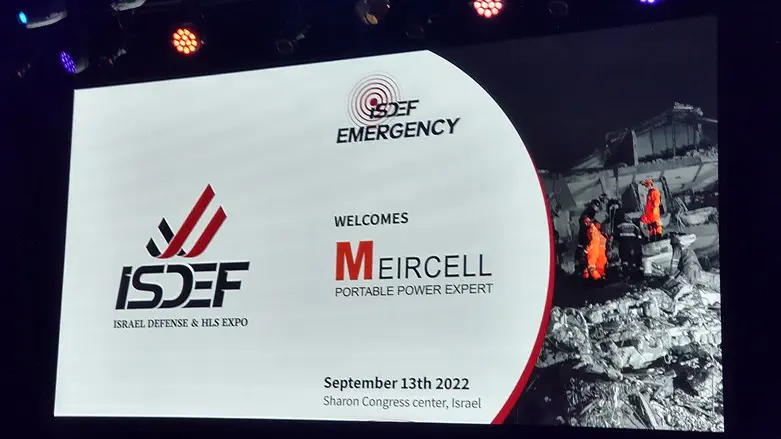
Israel's emergency services held the country's 9th National Emergency Summit on Tuesday, a convention intended to explore the many different aspects of responding to a national emergency and to exhibit each organization's unique capabilities and contributions to the potential response to a disaster.
The convention included 600 senior representatives of Israel's emergency response organizations, including the Israel Police, Fire and Rescue Service, Magen David Adom, United Hatzalah, port authorities, the IDF Home Front Command, the National Emergency Authority, and USAID.
Various threats to Israel's civilian populations were addressed, including missile attacks, civil unrest, pandemics, seismic events, wildfires, and extreme weather. The forum emphasized the need to create a culture prepared for emergencies and able to minimize damages and quickly return to routine life. Particular emphasis was given to creating a resilient economy that would support a rapid return to the usual order of civilian life.
Key speakers included Major General Rafi Milo, Commander of the IDF's Home Front Command, Fire and Rescue Commissioner Eyal Caspi, and John Patterson, USAID Commissioner. The central topics addressed included operational and economic continuity in the face of national disaster, preparedness for earthquakes, the challenges posed by extreme weather and wildfires, cooperation between Israel's forces and international relief teams, and the practical readiness of the Israeli population for an emergency.
The Israel Dog Unit (IDU), a nonprofit specializing in the training and deployment of working dogs for emergency response, presented to the assembly the ongoing issue of locating missing persons, displaying dozens of cases where civilians have disappeared without a trace. Among the cases represented was that of Avraham Moshe 'Moishe' Kleinerman, a teen from Modi'in Ilit who disappeared nearly half a year ago in the Meron region. IDU volunteers also exhibited their signature working dogs' capabilities in security work, a proprietary incident management application developed by the organization, and the contribution of a working dog to responding to a building collapse by locating and indicating where victims might be trapped under rubble.
The Israel Dog Unit exhibit at the summit (Photo: Israel Dog Unit)
Israel Dog Unit exhibition of working dogs at the summit. (Photo: Israel Dog Unit)
Vendors from inside and outside of Israel displayed a wide variety of leading technologies and equipment to help manage all kinds of civil emergencies. Among the items exhibited were rugged uniforms, first responder tools, medical equipment, communication gear, lighting systems, specialized response vehicles, and early-warning alarms for disasters such as earthquakes and hazardous material spills.
The summit provides an annual opportunity for professional interface and creates an infrastructure for cooperation between the senior policymakers and the officials in the various levels of responders responsible for handling emergencies. ISDEF, the organization hosting the summit, claims the summit is among the largest emergency response conventions in Israel. It gives an international forum to both military and civil organizations to interact with peer organizations on an international level with the aim of promoting more effective responses to the challenges of modern emergency situations.
